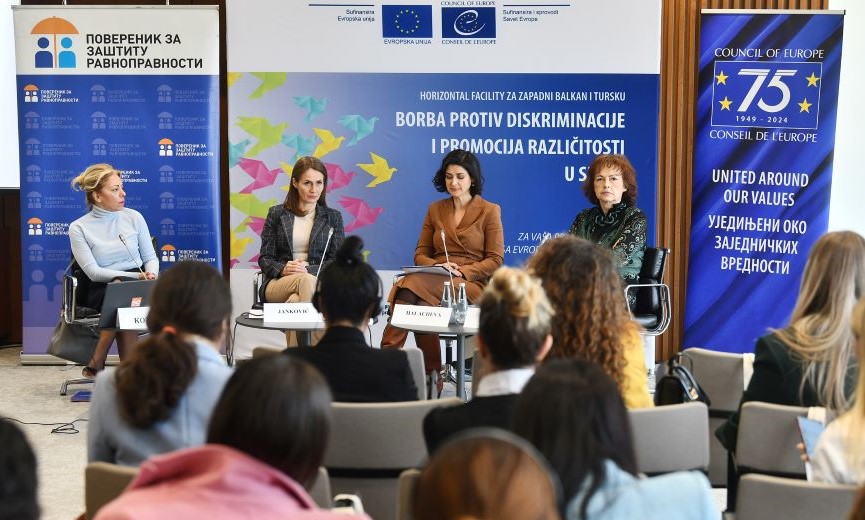A discussion on discrimination patterns in Serbia, by observing the latest trends presented in the national discrimination surveys’ reports took place in Belgrade. The event brought together representatives of public institutions, equality bodies, as well as civil society representatives, media, and experts who jointly discussed the ways forward to support delivering on reforms, but also changing the mindset of people and help recognising discrimination.
The European Union and the Council of Europe are supporting the Commissioner for the Protection of Equality in its work to address discrimination in Serbia, and the efforts to develop an accurate data collection for the Commissioner’s regular surveys on the attitudes of citizens and representatives of public authorities towards discrimination.
According to the latest findings, discrimination perception has not much improved in the eye of citizens. 70% of respondents perceive that discrimination is present in the Republic of Serbia and same percentage of respondents (70%) believe that stronger efforts are needed in the fight against discrimination. Particularly pronounced are prejudices against LGBTI people. Namely, as many as a third of respondents agree with the view that homosexuality is a disease that needs to be treated, while 48% believe that LGBTI people should not enjoy the same rights as heterosexual people.
Addressing the audience in the opening part, Nadia Ćuk, Deputy Head of the Council of Europe Office in Belgrade, stated: “I strongly believe that other relevant actors will find collected data useful for their future work such as to assess the effects of existing public policy measures on social groups particularly vulnerable to discrimination and provide evidence for relevant institutions to revise existing measures that contribute to structural discrimination.”.
Brankica Janković, Commissioner for Protection of Equality underscored that there was no significant reduction of discrimination and called all relevant actors to invest additional efforts to address it and improve the position of the poor, Roma and women, but also of all other citizens.
Plamena Halacheva, Deputy EU Ambassador to the Republic of Serbia emphasised that Serbia is not immune to the challenges of discrimination. Tangible improvements can only be achieved with clear political will, strong democratic institutions trusted by the citizens, prompt and adequate responses to every reported discriminatory behaviour, and the implementation of legislation in everyday life.
This event is organised by the action "Combating discrimination and promoting diversity in Serbia", implemented under the joint programme of the European Union and the Council of Europe “Horizontal Facility for the Western Balkans and Türkiye”.



